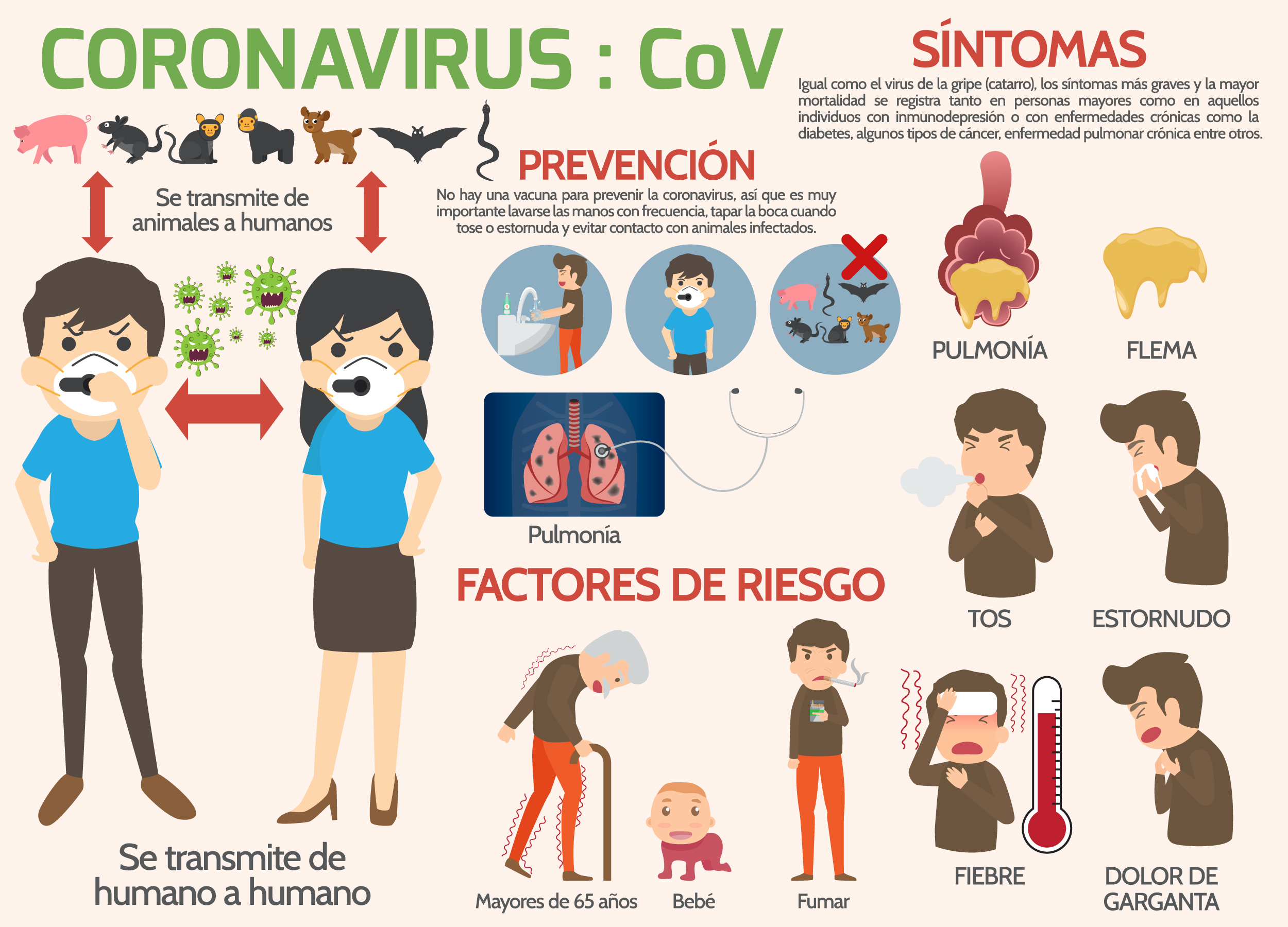In this free Medical Spanish lesson you will learn how to talk about the Coronavirus in Spanish with your patients: Cómo hablar sobre el Coronavirus en español.
In this free Medical Spanish lesson you will learn:
- Characteristics of the Coronavirus
- How it is transmitted
- Symptoms and Treatments
- Vulnerable populations
- How to prevent the infection
Here is the Coronavirus in Spanish lesson that I taught on YouTube and to our Facebook group:
Subscribe to our YouTube Channel to see all of our lessons and get the latest videos right away!
¿Qué es el Coronavirus? – What is Coronavirus?
El Coronavirus es un virus como la gripe. Este brote de coronavirus es parecido (similar) a los brotes del virus SRAS de 2002 y MERS de 2012. El período de incubación es desde 7 hasta 14 días.
Coronavirus is a virus just like the flu. This outbreak of coronavirus is similar to (similar to) the SARS virus breakout of 2002 and MERS breakout of 2012. The incubation period is from 7 to 14 days.
Transmisión – Transmission
El Coronavirus puede transmitirse de varias maneras:
| Spanish | English |
| Se transmite por vía respiratoria. | It is transmitted by respiratory airways |
| Cuando uno tose, estornuda o habla, las gotitas respiratorias pasan de uno a otro. | When somebody coughs, sneezes or speaks, the respiratory little drops pass from one to the other. |
| Puede transmitirse de animales a humanos. | It can be transmitted from animals to humans. |
| Puede transmitirse de humanos a humanos. | It can be transmitted from human to human. |
Síntomas del Coronavirus – Symptoms of Coronavirus

Sus síntomas son parecidos a los de la gripe. Coronavirus symptoms are similar to those of the flu:
| Spanish | English |
| Secreción y goteo nasal | Runny nose |
| Tos | Cough |
| Fatiga | Fatigue |
| Dolor de garganta | Sore throat |
| Fiebre | Fever |
| Escalofríos | Chills |
| Malestar general | General malaise |
| Dificultad para respirar | Difficulty breathing |
Note: Dificultad para + verbo infinitivo is the expression you need to use in Spanish for difficulty + action.
Poblaciones vulnerables – Vulnerable Populations
Algunas de las poblaciones más vulnerables al Coronavirus son:
- Adultos mayores de 65 años / Adultos over 65 years old
- Bebés / Babies
- Personas que fuman / People that smoke
- Personas con otras enfermedades crónicas / People with other chronic diseases
Tratamiento – Treatment

El Coronavirus se trata como un catarro común. Se recomienda: Tomar muchos líquidos, descansar, tomar Ibuprofeno y/o Acetaminofén para aliviar los dolores y la fiebre.
Coronavirus is treated much like a common cold. It is recommended to drink plenty of fluids, rest, take Ibuprofen and/or Acetaminophen to relieve pain and fever.
Prevención – Prevention
No hay vacuna para el Coronavirus. There is not any vaccine for Coronavirus.
Para prevenir el contagio, usted puede seguir estas recomendaciones. To prevent infection, you can follow these recommendations:
| Spanish | English |
| Lavarse las manos frecuentemente | Wash your hands frequently |
| Evitar tocarse la cara (ojos, nariz, boca) | Avoid touching your face (eyes, nose, mouth) |
| Evitar el contacto directo con otras personas | Avoid direct contact with other people |
| Saludar sin contacto físico | Greet people without physical contact |
| Cubrirse la boca al toser y estornudar | Cover your mouth upon coughing or sneezing |
| Evitar contacto con personas infectadas | Avoid contact with people who are infected |
Su tarea – Your Homework
- Review the notes & vocabulary
- Identify additional points and topics to discuss with patients
- Let me know if you need help 🙂
- Remember to keep it simple if you need to
- Ask for help in the comments below
- Give it a try with your patients!
Now it’s your turn! I packaged all of this vocabulary in Spanish into some flashcards for you to study.
I packaged all of this into easily downloadable .pdf notes–Get your copy for free today!
Keep up the good work speaking responsible Spanish to your patients! Check out our other books, classes & products to help you learn medical Spanish!
*If the link isn’t working for you, you may need to unblock pop-ups in your browser settings
Thinking About Immersion?
If you think you are ready to take the plunge with your Spanish, we would love the opportunity to work with you in Ecuador or Costa Rica during our immersion programs ?





Also, you SHOULD NOT take Ibuprofen it has really bad effects and almost killed someone! Be careful and safe!
– Ya boi C.J.R
Thank your for the symptoms list, however, for “Malestar general” I would not say “General MOLEST”. I strongly suggest changing it to “General DISCOMFORT”, or “General MALAISE”.
Thank you.
Absolutely – a definite error. Great catch!